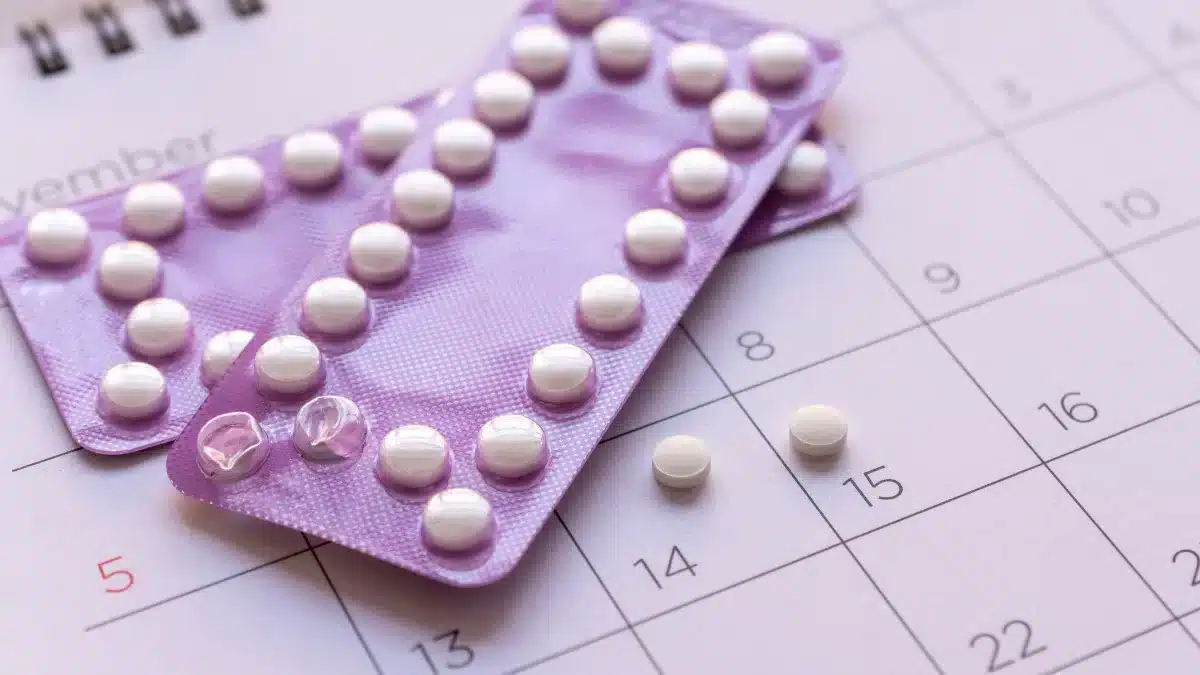Navigating Birth Control Options: Difference Between High and Low-Dose Birth Control Pills
Birth control pills are a popular and common contraceptive choice.
It comes in various types and strengths, offering choices for individuals seeking suitable options.
Broadly categorized into two main kinds—high-dose birth control pills and low-dose birth control pills—these choices cater to different preferences and needs.
These pills, categorized based on the levels of hormones they contain, offer distinct advantages and considerations for those seeking effective contraception.
This article will help you understand the difference between high and low-dose birth control pills.
Quick overview
Here’s a quick overview of how high and low-dose birth control pills may differ:
| Aspect | High-dose birth control pills | Low-dose birth control pills |
|---|---|---|
| Hormones included | Estrogen and Progesterone (more than 50 mcg of synthetic Estrogen) | Low doses of Estrogen (20 mcg) or Progestin-only pills (35 mcg) |
| Dosage range | More than 50 mcg of Estrogen | 10–35 mcg of synthetic Estrogen (Ethinyl Estradiol) |
| Effectiveness | Similar contraceptive effectiveness to low-dose pills | Similar effectiveness if taken correctly |
| Health considerations | Increased risk of adverse effects like Breast cancer, blood clots, stroke, or heart attack | Reduced risk of certain side effects associated with higher doses of Estrogen, but potential for more breakthrough bleeding |
| Suitability for health conditions | May not be suitable for individuals with Hypertension, history of blood clots, or Migraine | Considered a safer option for individuals with specific health conditions like Hypertension, a history of blood clots, or Migraine |
| Tolerability | Generally considered less tolerable, but individual responses vary | Tend to exhibit higher rates of discontinuation due to Amenorrhea, adverse events, or irregular bleeding |
High-dose birth control pills
High-dose pills or combination birth control pills contain both Estrogen and Progesterone.
It has more than 50 micrograms (mcg) of synthetic Estrogen.
High-dose pills might be recommended in specific situations, but they are generally considered less favorable due to an increased risk of adverse effects.
High-dose pills can be monophasic (constant hormone levels in each pill) or multiphasic (varying hormone levels throughout the menstrual cycle).
Low-dose birth control pills

Low-dose pills have low doses of Estrogen, or they have only Progesterone, called Progestin-only pills.
These pills are more commonly prescribed today as they have a lower risk of side effects.
They have the same level of efficacy as high-dose pills and are 99% effective if taken correctly.
Dosage differences
Low-dose birth control pills contain 20 micrograms (mcg) of synthetic Estrogen (Ethinyl Estradiol), and the Progestine-only pill contains 35 micrograms of Progesterone
They provide effective contraception while minimizing potential side effects.
High-dose birth control pills offer similar contraceptive effectiveness with more than 50 mcg of Estrogen and carry a higher risk of certain side effects.
Health considerations
While birth control pills, both high and low-dose, are generally safe, they have been associated with certain health risks.
The high-dose pill risks include but are not limited to Breast cancer, blood clots, stroke, or heart attack.
Conversely, low-dose pills, while reducing certain risks associated with higher doses of Estrogen, might lead to more breakthrough bleeding.
For individuals with specific health conditions like Hypertension, a history of blood clots, and Migraine, low-dose birth control pills might be the safer option.
Tolerability
One of the primary considerations between high and low-dose birth control pills is their tolerability.
Lower-dose Estrogen pills, despite their effectiveness, tend to exhibit higher rates of discontinuation among users than high-dose birth control pills.
Lower dose leads to early discontinuation due to Amenorrhea, adverse events, or irregular bleeding.
Conclusion
High-dose pills containing more than 50 micrograms of synthetic Estrogen offer effective contraception.
On the other hand, low-dose pills, with 20 micrograms of synthetic Estrogen or 35 mcg of Progestin-only pills.
High-dose pills are associated with an increased risk of adverse effects such as Breast cancer, blood clots, stroke, or heart attack.
While both high and low-dose pills are 99% effective when taken correctly, the trade-off lies in the potential side effects and tolerability.
Low-dose pills, though reducing certain risks associated with higher Estrogen doses, may lead to more breakthrough bleeding, and they have higher rates of discontinuation.
The decision to opt for high or low-dose birth control pills should be made in consultation with a healthcare professional.
Frequently Asked Questions
What are the potential side effects of high-dose birth control pills?
High-dose birth control pills can include an increased risk of adverse effects like Breast cancer, blood clots, stroke, or heart attack. It’s crucial for individuals considering high-dose pills to discuss their medical history and any risk factors with a healthcare professional.
Are low-dose birth control pills as effective as high-dose pills?
Yes, low-dose birth control pills can be as effective as high-dose pills in preventing pregnancy. Despite containing lower levels of Estrogen or Progestin-only pills, low-dose pills offer a 99% effectiveness rate when taken correctly. Their efficacy is comparable to high-dose pills, making them a popular and viable choice for contraception.
What is the typical dosage range for low-dose birth control pills?
The typical dosage range for low-dose birth control pills is 20 micrograms of synthetic Estrogen (Ethinyl Estradiol). Progestine-only pills have 35 micrograms of Progestine. These pills aim to provide effective contraception while minimizing the potential side effects of higher doses of Estrogen.
What health issues should be considered with high-dose birth control pills?
High-dose birth control pills may not be suitable for individuals with specific health conditions. These conditions include Hypertension, a history of blood clots, Migraine, uterine bleeding, or a history of liver problems. The elevated levels of synthetic Estrogen in high-dose pills can increase the risk of certain adverse effects.
WowRx uses only high-quality sources while writing our articles. Please read our content information policy to know more about how we keep our content reliable and trustworthy.






